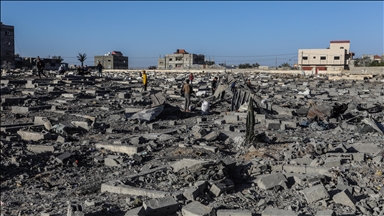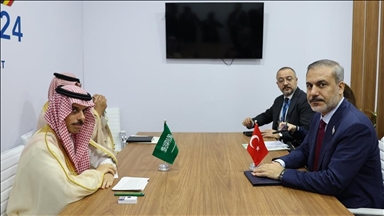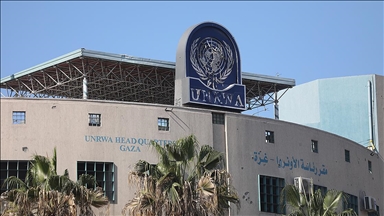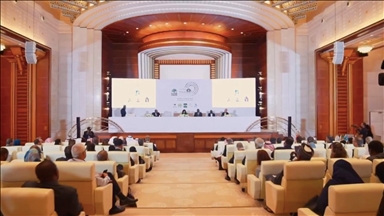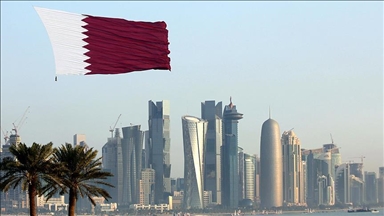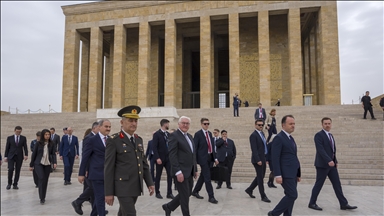Saudi Arabia and Gulf countries are key in OPEC meeting
Saudi Arabia and Gulf countries to play key role in outcome of OPEC meeting on Thursday when strategy amid falling oil prices will be debated
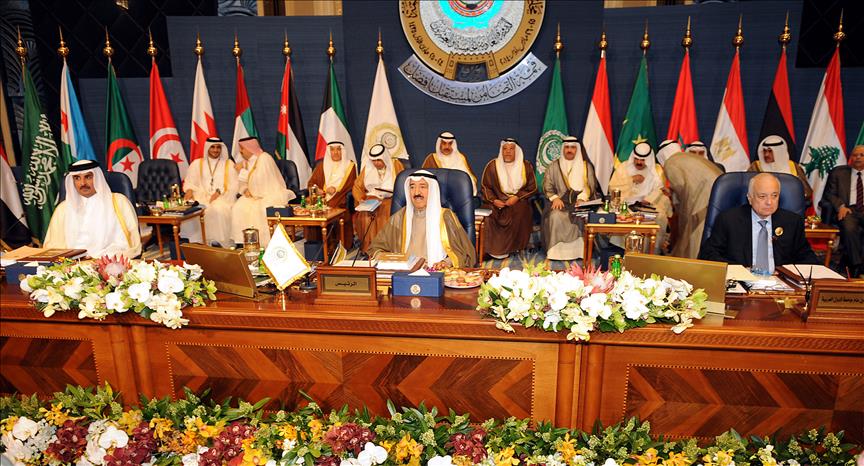
By Ovunc Kutlu and Arif Hudaverdi Yaman
ANKARA
Saudi Arabia and Gulf countries are expected to play key roles in the outcome of OPEC's meeting on Thursday against falling oil prices, while the oil cartel's influence on determining oil prices may be diminishing, say experts.
Brent crude oil price, the global benchmark for oil prices, has fallen more than 30 percent since June from $115 per barrel to below $80 in November due to a combination of factors.
The global demand for oil remains weak with the Asian and European countries' slow growth rates, while the increasing U.S. domestic oil production, and rising value of the U.S. dollar, of which the oil prices are indexed to, hinder the overall oil demand.
All eyes have turned to the much-anticipated meeting of OPEC, Organization of the Petroleum Exporting Countries, who are expected to determine a strategy against the falling oil prices.
"Expectations are that it will be a very difficult meeting, precisely because OPEC is heavily divided," said Sijbren de Jong, an analyst at the Hague Centre for Strategic Studies.
OPEC members Saudi Arabia, Kuwait and Iraq, who also have some of the lowest oil production costs in the world, have signaled earlier that they would not cut their oil production volumes to preserve their market shares.
"Saudi Arabia is far the biggest producer within OPEC," said Simon Henderson, director of the Gulf and Energy Policy Program at the Washington Institute.
"The other OPEC countries want Saudi Arabia to take the burden and Saudis do not want to," he added.
Meanwhile, other countries of the oil cartel, led by Venezuela, are leaning towards cutting production in order to decrease excess oil supply in the world markets, hoping to trigger a rise in oil prices and preserve their oil-revenue-dependent economies from further damage.
"The Saudis and other Gulf states are the key actors who will shape the outcome," said Robert A. Manning, resident senior fellow of the Brent Scowcroft Center on International Security at the U.S.-based Atlantic Council.
"Other OPEC members - Iran, Venezuela and Nigeria - will push hard for reducing production by one million barrels a day to raise the price of oil back to the $100 level, but they lack the leverage to do so," Manning said.
De Jong stated that there is excess supply of about one to 1.5 million barrels per day, but Saudi Arabia and Kuwait, among other more financially strong members, will not be willing to instigate a supply cut of that magnitude which needs to be distributed among OPEC members.
Possible outcomes
OPEC, once a strong organization determining global oil prices, may see its last days of having control over the influence of oil supply and price levels, as a sharp divide between strong producers and other members has begun to emerge.
"My prediction is there won't be an agreement this time on cut backs," said Henderson, adding that if the prices continue to fall, there will be pressure on OPEC.
"If OPEC does nothing, the oil price could even slide further as the credibility of OPEC is undermined, which would wreak havoc on the budgets of Venezuela, Nigeria, Libya, and Iran," said de Jong.
Manning stated that some OPEC members are slowly becoming aware of the reality that the rapid growth in non-OPEC oil production, like the U.S. shale revolution and advances in deep-sea drilling, means that OPEC's control over pricing is diminishing.
Experts agree that while Saudi Arabia and other Gulf countries are expected to be the winners who can tolerate low oil prices longer than other smaller producers, oil importing countries and oil-intensive industries like airlines and trucking will also continue to benefit from the lower oil prices.
Russia and Iran
The decline in oil prices have hit Russian and Iranian oil revenues as well, while the Asian markets witness fierce competition between producers to capture more market share.
"Because of oil oversupply, there is simply competition for access to the Asian market," said de Jong, adding that the Saudis are in a far better financial position to offer lower prices than either Iran or Russia.
While western powers imposed sanctions on Iran because of its nuclear program, Russia has faced restrictions in seeking financial resources and high-tech drilling equipment from western countries.
"With sanctions on Iran and Russia, if oil stays at about $80 or below, it will be devastating for the Iranian and Russian economies," said Manning, adding that falling prices may improve the prospects for a nuclear deal with Iran, but Russia needs $110 per barrel to avoid a budget deficit.
Henderson stated that Saudi Arabia would not make a move to cut production, which would harm itself and benefit Russia who is not an OPEC member.
Anadolu Agency website contains only a portion of the news stories offered to subscribers in the AA News Broadcasting System (HAS), and in summarized form. Please contact us for subscription options.


